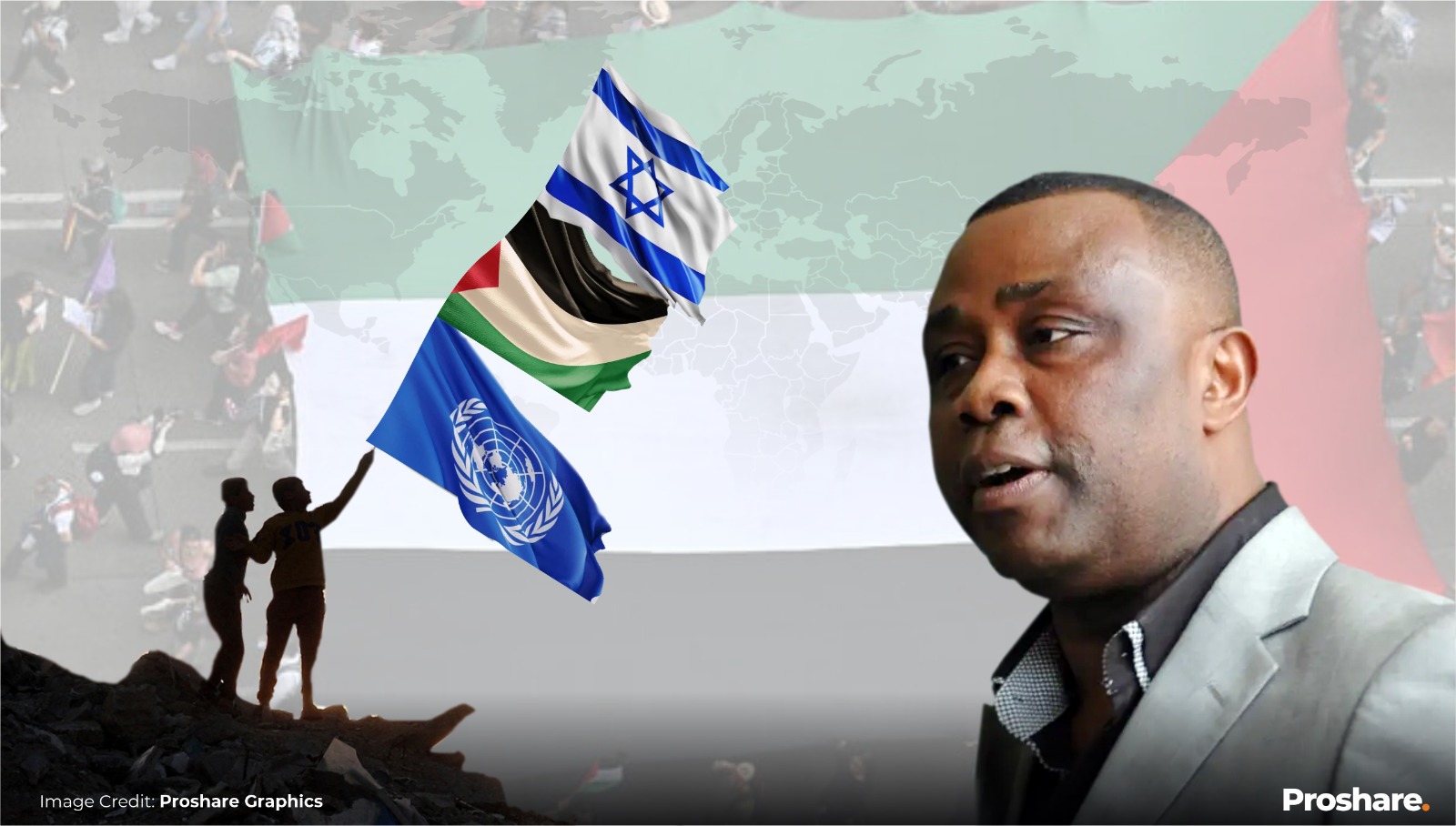Just as I was gathering my thoughts around the implications of the United Kingdom’s recognition of Palestinian statehood for Africa, Television Continental (TVC) reached out for an afternoon conversation on the topic. The anchor, Olumide Adeyemi, in trying to set the context for the interview, asked a question to the effect that the UK Prime Minister Keir Starmer is one of the latest leaders to announce his government’s formal recognition of Palestinian statehood ahead of the United Nations General Assembly. Has the diplomatic world taken notice? I quickly underlined in my opening remark the phrase one of the latest. Why? Because the number is indeed growing admirably. It is not the first recognition of Palestine by a Western democracy, but it is the most consequential in decades, coming from a permanent member of the UN Security Council, a G7 member and a long-standing ally of Israel. For Africa, and for Nigeria in particular, this development is more than just a headline. It is a call to examine where the continent stands on questions of justice, sovereignty, and global equity.
We must examine the weight of recognition beyond symbolism
Sceptics, Olumide queried, will argue that recognition changes little on the ground. Yes, Palestinians still face occupation, displacement, and a humanitarian crisis. Israeli citizens still live under insecurity and fear. Yet diplomacy has always been about more than immediate change. Diplomacy is about reshaping narratives and shifting the balance of legitimacy. By recognising Palestine, the UK signals that the two-state solution cannot remain an abstract slogan while settlements expand, and lives are lost. Symbolism may be the seed, but history shows that without a seed, the harvest of peace never comes.
We must equally interrogate Africa’s historical alignment with justice
Africa has been here before. The continent knows what it means to struggle for dignity and self-determination. From Algeria to South Africa, from Zimbabwe to Namibia, liberation struggles were sustained by international solidarity. Nigeria, in particular, played a decisive role in the fight against apartheid, not by arms but by principled diplomacy. It would be inconsistent and morally hollow for Nigeria to now stand aloof in the face of Palestinian aspirations.
Recognition of Palestine is not an act of hostility toward Israel. It is a reaffirmation that true peace requires two partners of equal standing. That principle resonates deeply with Africa’s own historically lived experience.
Nigeria has its role marked out for it in balancing principle and pragmatism
Critics may caution that taking a firm position could harm Nigeria’s trade or security relations with Israel and Western allies. But principled diplomacy is not about hostility. It is about balance. Nigeria can cooperate with Israel in areas like technology and agriculture, while also championing Palestinian statehood. Indeed, it is in Israel’s long-term interest to coexist peacefully with a legitimate neighbour rather than to perpetuate endless conflict.
Nigeria must therefore:
- Reaffirm its historic support for Palestinian self-determination at the United Nations and the African Union.
- Use its diplomatic influence to encourage dialogue, humanitarian access, and accountability.
- Engage with other African states to form a collective voice that pushes for balanced solutions.
- Position itself not just as an observer but as a moral conscience, consistent with its tradition of fighting injustice.
We must not see neutrality through the prism of neutral
Some may argue that Nigeria should remain neutral. That is a distant conflict, they may say. But neutrality in the face of injustice is never truly neutral. It tilts the balance in favour of the stronger party, which is Israel. Africa’s silence would not be seen as prudence but as complicity. The continent has too much history of oppression to now stand by while other people are denied their rights.
The world is seeing Global Diplomacy at a turning point
Starmer’s move may strain London’s relations with Tel Aviv, but it also breathes life into a suffocating peace process. If a Western power like the UK is prepared to acknowledge Palestine’s right to exist, others may follow. Africa, with Nigeria at its helm, should not trail behind. It’s got to step forward. This is not about choosing between Palestine and Israel. It is about choosing justice, balance, and peace. It is about affirming that sovereignty and dignity are not privileges for the powerful but rights for all peoples.
In the final analysis, and that is my bottom line: Nigeria Must Lead with Principle
Prime Minister Starmer’s recognition of Palestine is more than a diplomatic gesture. It is a challenge to the international community to re-centre justice in global affairs. For Nigeria and Africa, the choice is clear. We can either remain spectators, waiting for Washington or Brussels to act, or we can stand where history demands. The writing on the wall before me reads that people of goodwill must side with fairness, be consistent, and sue for peace. If Africa’s voice meant something against apartheid, it must mean something now for Palestine. Nigeria, as Africa’s anchor on the world stage, has both the moral responsibility and the diplomatic capacity to ensure that recognition translates into real momentum for peace. Because in the end, unless the rights of all people are recognised equally, peace will remain out of reach.
Stay ahead with the latest updates!
Join The Podium Media on WhatsApp for real-time news alerts, breaking stories, and exclusive content delivered straight to your phone. Don’t miss a headline — subscribe now!
Chat with Us on WhatsApp




